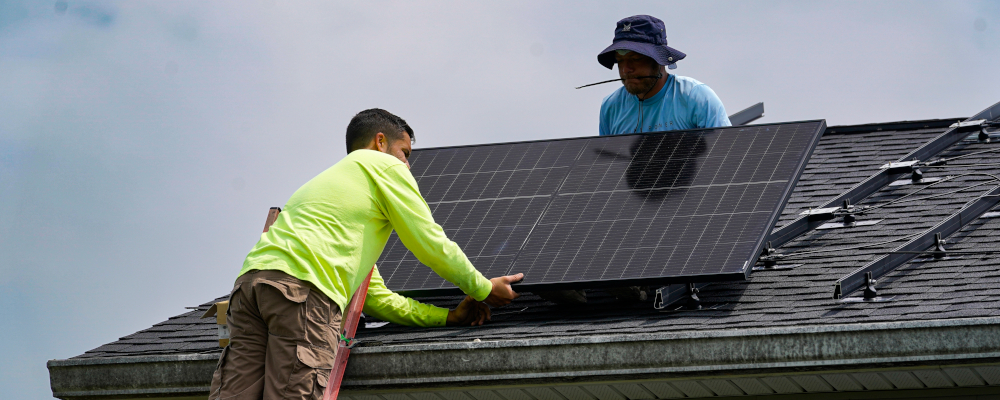As I’m writing this piece, Justin Trudeau’s federal Liberal cabinet is meeting in PEI to discuss, presumably, their recent struggles in the polls. All signs seem to point to the higher cost of living—and, specifically, the rising cost of housing—as a big reason their political fortunes are at risk.
To date, Trudeau’s housing strategy (or lack thereof) has focused on three pillars:
- Spattering announcements of small-scale affordable housing projects being funded by the feds;
- Launching a huge new budget line called the Housing Accelerator Fund that promises money to municipalities with no strict targets or associated penalties; AND
- Shifting the blame for the housing crisis to anyone but themselves.
In light of recent polls, it’s fair to say that Trudeau’s “strategy” is failing. The recent cabinet shuffle—as irrelevant as it broadly was—saw one significant change that supports this: ditching the ineffective Ahmed Hussein from the housing file in favour of the “fixer” Sean Fraser, the former immigration minister.
Luckily for both the PM and his newly appointed housing Czar, there is no shortage of expertise surrounding this issue. In fact, among the attendees in PEI this week is Mike Moffatt, who recently published his call to action for the federal government in The Hub.
Mike’s ideas are solid. In fact, if Trudeau and Fraser implemented his plan, we’d likely start to see positive change on this file. But I do want to take issue with one big pillar of his proposals: that a national housing policy needs to have any mention of the words “climate change”. It shouldn’t.
There’s a common saying in the world of tech (where I work): “If you have too many priorities, you have none”. Put differently, a national housing policy with a stated purpose of achieving climate change targets will fail to achieve housing completion targets.
It’s incredibly important that we recognize what’s at stake in this debate. Anything short of a singular focus on the singular issue of increasing the housing supply quickly will ultimately lead to any proposed policy failing to close the gap sufficiently to correct this problem.
A recent example of this would be in Vancouver, where the City is considering a new building code amendment that would mandate air conditioning in new rental developments due to recent temperature increases in B.C. Although this type of policy is well-intentioned, it has the side effect of increasing costs to already prohibitive rental housing developments in a city like Vancouver. The result will undoubtedly be fewer new housing completions.
Naturally, there are plenty of good reasons to debate climate change and the climate impacts of construction, population growth, sprawl, etc., but this is not the policy area in which to surface those issues. This Liberal government in particular will have a hard time not waving around their climate virtues on this file, but ultimately I think that will be their undoing.
The priority today must be to unblock the restrictions at all levels of government that prevent our private sector from building. That’s it. In many cases, those restrictions come packaged in policies called “green standards” or “sustainable design requirements”, but these all add up to more bureaucracy, more costs, and fewer units of housing getting built.

It’s not that we shouldn’t be aware of the environmental implications of our policy decisions. We should. But we should look to urbanisation as a big lever in our fight for a cleaner environment. It’s not often discussed, but one of the single most important things we could do to promote a clean environment as a country is to dramatically increase density in our big cities. Urban sprawl (i.e. suburbs) is incredibly inefficient and damaging to the environment as compared to increased density in city cores.
That’s to say that this is not really a national housing crisis. This is a big city housing crisis that medium and small-sized cities have been expected to step up and solve. The problem with this approach is that we’re layering problems. Housing is getting built further and further from economic centres (developing Milton vs. old Toronto); infrastructure has not been planned for this sprawl; and it puts more people in cars, requires longer and less utilised power transmission lines, and less utilised water utilities, garbage services, etc.
If we want to achieve the order of magnitude of housing completions we need in this country moving forward, and we don’t want to dramatically harm our environment in the process, the solutions all point to doubling or tripling the density of our biggest cities in the coming decades.
A federal government that recognizes this would be a good start to making progress on housing in this country.
Recommended for You

‘Our role is to ask uncomfortable questions’: The Full Press on why transgender issues are the third rail of Canadian journalism

Need to Know: Mark Carney’s digital services tax disaster

Theo Argitis: Carney is dismantling Trudeau’s tax legacy. How will he pay for his plan?

Kirk LaPointe: B.C.’s ferry fiasco is a perfectly Canadian controversy




